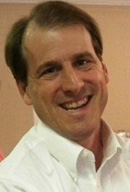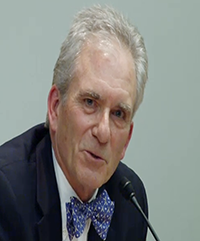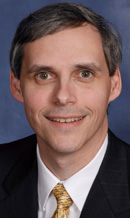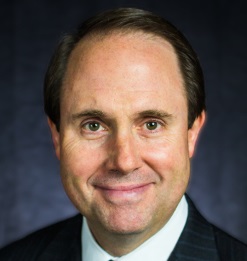By Ken Camp
Some Americans warn that an overreaching federal government threatens religious liberty, while others worry a secular culture that values political correctness over truth imperils freedom of religion.
Yet others say it’s a matter of perspective.
“I would suspect that a Muslim family subjected to endorsements of Christianity in public settings might view those as threats to their religion,” said Courtney Krueger, pastor of First Baptist Church in Pendleton, S.C.
A recent Public Religion Research Institute poll found a majority — 54 percent — of Americans believe religious liberty is being threatened in America, up from 39 percent two years ago.
 Republicans are twice as likely as Democrats — 80 percent vs. 40 percent — to say religious liberty is threatened, the poll shows. Eight out of 10 white evangelicals — 83 percent — believe religious liberty is being threatened in the United States today, compared to 55 percent of Catholics and 53 percent of white mainline Protestants.
Republicans are twice as likely as Democrats — 80 percent vs. 40 percent — to say religious liberty is threatened, the poll shows. Eight out of 10 white evangelicals — 83 percent — believe religious liberty is being threatened in the United States today, compared to 55 percent of Catholics and 53 percent of white mainline Protestants.
Brent Walker, executive director of the Baptist Joint Committee for Religious Liberty, agrees threats to religious liberty exist, “although they are sometimes overstated for political reasons or to stir up fund-raising opportunities.”
“Some people, generally on the far left, don’t think we should have any accommodation of religion and believe any attempts to relieve burdens on the exercise of religion impermissibly establish religion,” Walker said, pointing to tax exemptions and exempting churches from anti-discrimination laws as examples.
“Others, on the far right, want their religion protected but ignore the effect it would have on the rights of third parties or how it could result in a true establishment of religion.”
 The reality of increasing religious pluralism in the United States — not genuine animosity toward Christianity — prompts some Christians to feel as if their faith somehow is being pushed to the margins, Krueger noted.
The reality of increasing religious pluralism in the United States — not genuine animosity toward Christianity — prompts some Christians to feel as if their faith somehow is being pushed to the margins, Krueger noted.
“When government seeks to appropriately apply the establishment clause of the First Amendment to the Constitution, it may feel to many adherents of Christianity that government has suddenly become hostile to Christianity,” he said. “I do not sense a hostility from government toward Christianity.”
Rather, government properly is seeking to avoid establishment of religion by “promoting one religion over another or any religion over unbelief,” he added.
Chad Chaddick, pastor of Northeast Baptist Church in San Antonio, Texas, polled members of his church council to determine if they believe religious liberty is threatened in the United States.
“Assuming perception is reality,” he said, the answer must be a resounding “yes.”
A public school music teacher said she was told she could not include religious songs in a concert. Retired military personnel talked about restrictions on chaplains. Others mentioned public places where spoken prayers “in Jesus’ name” were barred.
 Chaddick does not share some of his members’ concern that state-sponsored prayer has been removed from public schools, for example. However, he perceives a real threat to religious liberty from a different source — the popular sentiment that religion is a strictly private matter and a civil religion that exalts toleration, expands the understanding of human rights and embraces a materialistic view of the world.
Chaddick does not share some of his members’ concern that state-sponsored prayer has been removed from public schools, for example. However, he perceives a real threat to religious liberty from a different source — the popular sentiment that religion is a strictly private matter and a civil religion that exalts toleration, expands the understanding of human rights and embraces a materialistic view of the world.
“This loose civil religion is serving a very religious function in helping shape the moral values of the nation,” he said. “The nation — through its public institutions and its government powers — is establishing this civil religion as the religion of the nation.”
And in the face of that civil religion it’s become acceptable to express bias against sectarian faiths, including Christianity, as well as to suppress and ridicule the views of their adherents — especially in the realm of public discourse, he said.
Cultural analyst Jim Denison likewise points to ways contemporary American culture extols the virtue of tolerance but deals intolerantly with some religiously based views.
A Colorado baker who refused to bake wedding cakes for same-sex couples was ordered to make them and undergo sensitivity training, the founder of the Denison Forum on Truth and Culture noted. A U.S. Army Reserve training presentation referred to evangelical Christians as “religious extremists” alongside al-Qaeda, Hamas and the Ku Klux Klan, he added.
“If you believe homosexual activity is forbidden in Scripture and is therefore wrong, you are clearly on the wrong side of public opinion and can expect growing restrictions on your freedom of speech and religious convictions,” Denison said. “If you want to express your faith publicly, you can expect opposition and discrimination in some parts of our country.”
 If threats to religious liberties exist — whatever their source — rather than wage culture war, several Baptists insisted the best approach involves presenting a consistent, loving Christian witness.
If threats to religious liberties exist — whatever their source — rather than wage culture war, several Baptists insisted the best approach involves presenting a consistent, loving Christian witness.
“Baptist-type Christians must strive to love all people, and particularly those on the margins of society — those who have found the civil religion empty and uncaring in its tacit approval of human selfishness,” Chaddick said.
“In loving the broken, the forgotten, the marginalized, Baptist-type Christians will need to give up any sense that our work, our faith or our organizations will somehow achieve a level of social acceptability or accolade.
Chaddick added he suspects public opinion will continue to swing in its current direction until enough people experience enough brokenness that they once again seek refuge in God.
American Christians in the 21st century should consider the example of Christians in the first century, Denison noted.
“Early Christians had far fewer religious freedoms than we enjoy today. … Yet they ‘turned the world upside down’ (Acts 17:6) and launched the largest spiritual movement in human history,” he said.
They did it by demonstrating their faith through love and without waging a culture war, he said. Instead, they gave their lives to a movement of subversive service and grace.
True Christian love means standing for the rights of people with whom Christians disagree and applying the Golden Rule, Krueger insisted.
“We should continue to ensure the religious freedom of everyone, especially of those who do not share our faith,” he said. “I can think of no greater witness.”
